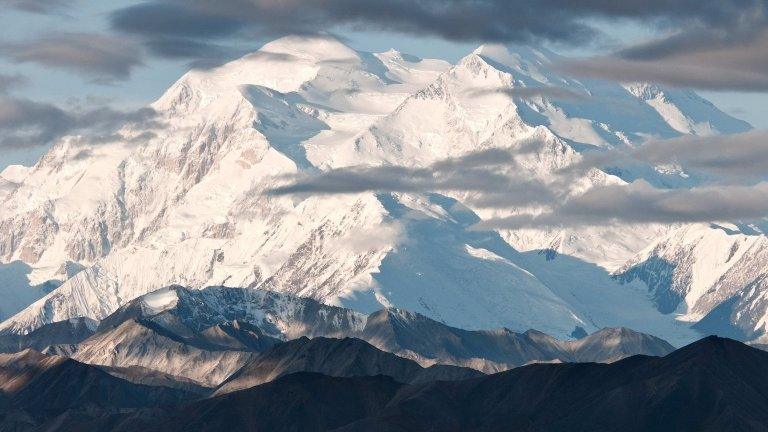Mount McKinley's Alaska name Denali is restored by Obama
- Published
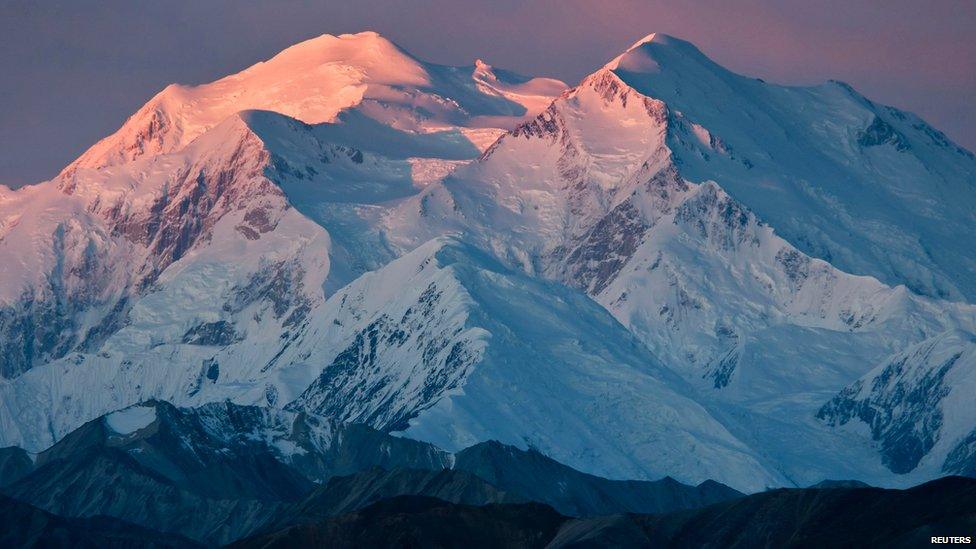
After decades of controversy, the name of Mount McKinley, the tallest mountain in North America, has been changed back to its original native Alaskan, Denali.
The 20,237ft (6,168m) peak was named by a gold prospector in 1896 after he heard that William McKinley had been nominated to become the US president.
US President Barack Obama announced the change ahead of a three-day visit to Alaska to highlight climate change.
But Republican Speaker of the House John Boehner has denounced the move.
The new name Denali translates as High One or Great One and is used widely by locals.
"With our own sense of reverence for this place, we are officially renaming the mountain Denali in recognition of the traditions of Alaska Natives and the strong support of the people of Alaska," US Interior Secretary Sally Jewell said in a statement announcing the change.
The statement went on to note that McKinley had never set foot in Alaska.
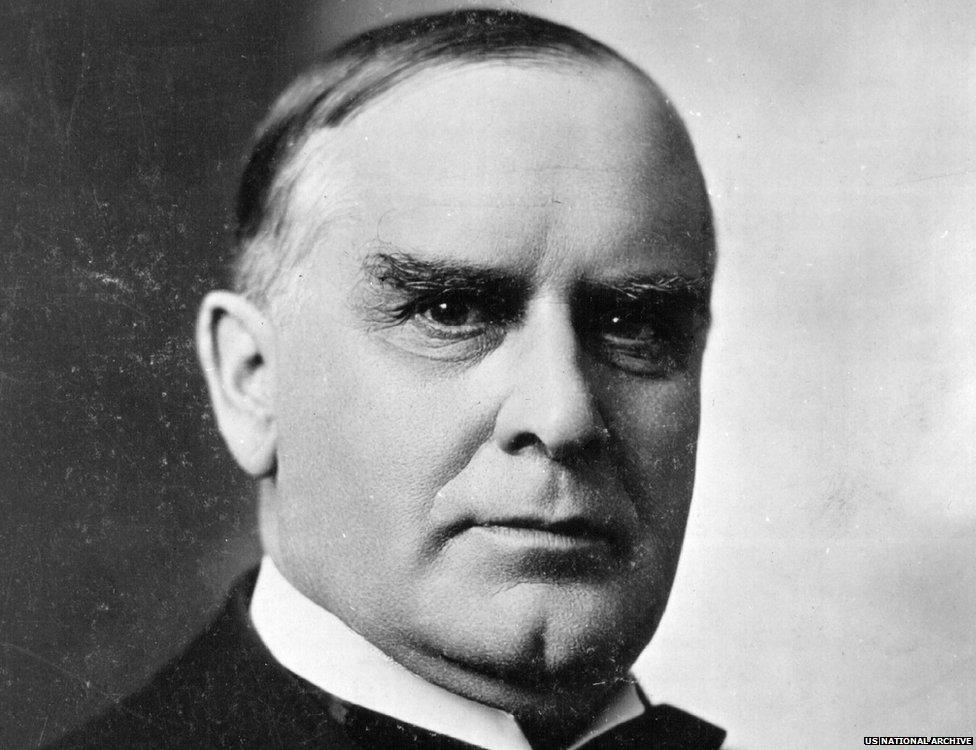
The mountain was named in honour of William McKinley's nomination for president
Alaska has been attempting to change the name to Denali for decades. However, its attempts to change it at a federal level have been blocked by Ohio, William McKinley's home state.
Politicians there criticised the name change, with Mr Boehner - who represents Ohio's 8th congressional district - saying he was "deeply disappointed".
"There is a reason President McKinley's name has served atop the highest peak in North America for more than 100 years, and that is because it is a testament to his great legacy," Mr Boehner said, external.
Another Republican, the Ohio Senator Rob Portman urged, external President Obama to find another way to preserve McKinley's name in the national park where the peak is found.
But the Republican Senator for Alaska, Lisa Murkowski, who campaigned for the change, tweeted, external she was "honoured" to recognise the mountain as Denali.
McKinley was the 25th president of the United States. He was assassinated early in his second term in 1901.

Some notable name changes
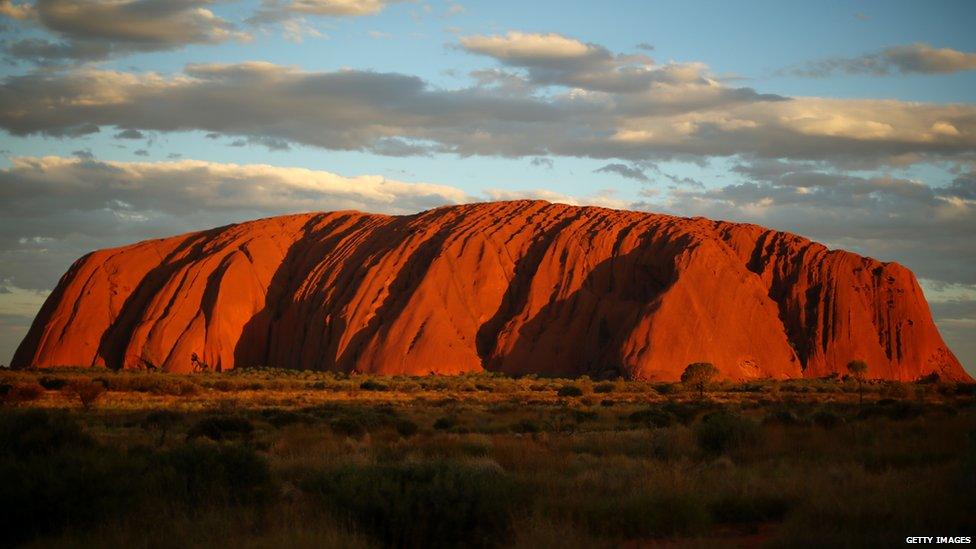
Uluru/Ayers Rock
The huge rock formation in central Australia was for many years widely known as Ayers Rock, a name coined by a European explorer. However, it was originally called Uluru by local Aboriginal people. In 1995, it became Ayers Rock/Uluru, and then in 2002 this was reversed to Uluru/Ayers Rock.
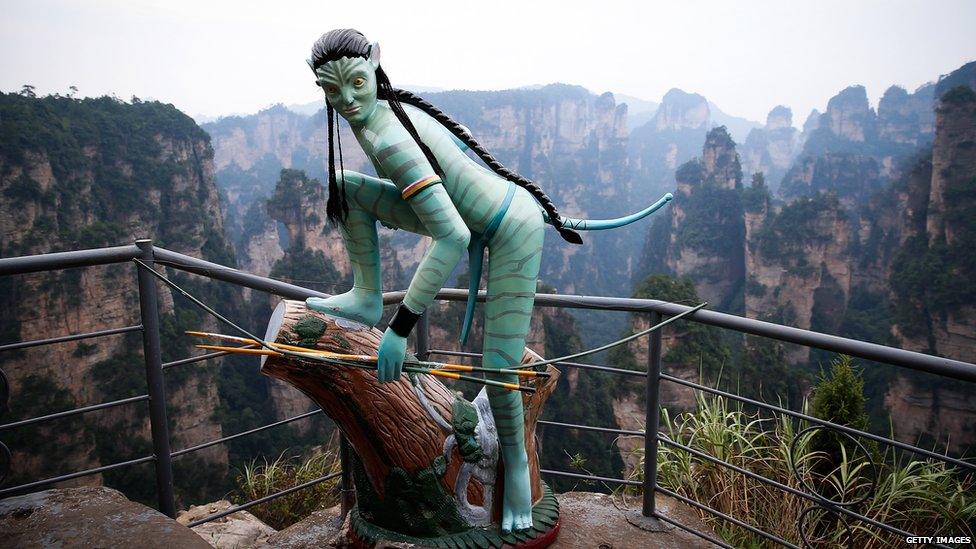
An Avatar inspired change
In China, the Southern Sky Column in Zhangjiajie was changed to the Avatar Hallelujah Mountain after it provided inspiration for the landscape in the best-selling Avatar film.
In 1950, the town of Hot Springs in New Mexico changed its name to Truth or Consequences. The change was inspired by a competition after a popular radio show promised to broadcast from the first town to change its name to that of the show.
- Published12 September 2013
